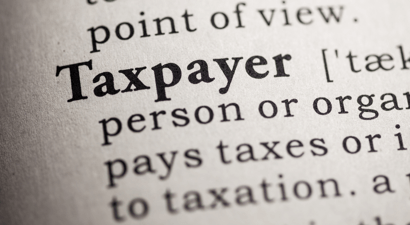Understatement Penalties and Intentional Tax Evasion
The case of Mr A and XYZ CC versus the Commissioner for the South African Revenue Services, (judgment was handed down on 08 February 2018) dealt with the failure by taxpayers to submit income tax returns and VAT returns and the resultant understatement penalties imposed by SARS.
The sole proprietor of a close corporation as well as the entity itself, failed to submit certain income tax returns and VAT returns for certain tax years and VAT periods attributed to them, which ultimately led to audits of the tax affairs of both taxpayers in connection with their conduct of the business of the close corporation. The assessments that resulted from the audits included substantial penalties. The Appellants accepted that the tax reflected in the assessments were correctly calculated and raised, however, in the appeal to the tax court, they challenged the understatement penalties imposed by the Commissioner.
Assistance by the Taxpayer during Audit
One of the main factors which came out in the judgment was the evidence given by the SARS’ auditor who had conducted the audit, stating that she did not receive cooperation from the Appellants or from the accountant of the CC during the audit. Although she conceded that she may have received annual financial statements from the taxpayers after the audit, she had to obtain bank statements from the bankers of the close corporation and using those documents generated her initial audit findings.
The auditors submitted the audit findings to the committee dealing with penalties and that generated the decision that understatement penalties should be charged under chapter 16 of the Tax Administration Act at 150%, on the basis that the behaviour of the first and second Appellant be classified as “intentional tax evasion”.
Burden of proof regarding Understatement Penalties
In their Statements of Grounds of Appeal the taxpayers pleaded that the worst categorisation of their conduct or behaviour was that they failed to take reasonable care which, in terms of section 223, results in a penalty of 25%. This submission was based on a proposition that, as a matter of fact, the administrative capacity of the close corporation was not up to standard and as a result, the CC could not render returns, being uncertain as to whether they would be correct or accurate. That, according to the Grounds of Appeal, is why the returns were not rendered.
No witness was called by the taxpayer. There was no attempt through evidence either to state or support the alleged factual proposition that the CC lacked the administrative capacity necessary to render its VAT returns once every 2 months, and to state its contribution to the income of its sole proprietor once a year.
Section 102(2) of the Tax Administration Act infers that the burden of proving the facts on which SARS bases the imposition of an understatement penalty under chapter 16 is upon the Commissioner. However, the question of the administrative capacity of the CC during the years in question is a matter specifically within the knowledge of the two taxpayers.
The court did not accept the proposition that an absence of administrative capacity justifies not submitting tax returns. The court went on to state that it appeared that SARS had established a prima facie case from which the only inference to be drawn is that these tax returns were withheld intentionally throughout, and without any discernible excuse. In the absence of evidence tendered by the taxpayers to counter the Respondents prima facie case, the court held that it ripens into evidence sufficient to discharge the burden of proof faced on SARS. In the circumstances, the court found as fact that no shortfall in administrative capacity on the part of the close corporation caused or justified the failures of the taxpayers to submit income tax or VAT returns.
Conclusion
The take away from this judgment is clear that taxpayers, when dealing with SARS auditors, although at all times being mindful of their constitutional rights and rights given to them under the Tax Administration Act, must co-operate with the SARS auditors as much as reasonably possible and provide them with the documentation requested. The taxpayer’s behaviour during audit will have a direct bearing on the understatement penalties imposed by SARS.
Furthermore, it is imperative that taxpayers ensure that they timeously render their returns as, once again, it is clear from this matter that an excuse that the taxpayer is not aware of its obligations as far as income tax and VAT returns are concerned and whether it lacks administrative capacity to attend to same, is not an excuse that SARS and/or the court will readily accept.





